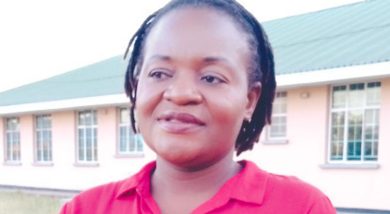Task force rebuffs teachers on risk allowance
Presidential Task Force on Covid-19 has rejected a Teachers Union of Malawi (TUM) request to have teachers receive risk allowances as is the case with frontline health care workers.
Minister of Education Agnes NyaLonje told Parliament yesterday that the task force made the decision earlier yesterday and has since communicated to TUM.
She said her ministry cannot provide the allowances because it was beyond labour policies; hence, the task force was engaged to provide guidance.

“The task force does not think giving teachers the risk allowances is appropriate this time,” said NyaLonje.
The position comes after talks between TUM and Ministry of Education on Monday, the day schools reopened from a five-week break induced by Covid-19 public health guidelines
failed to resolve the allowance issue. President Lazarus Chakwera also referred the question of allowances to the task force after meeting TUM on Tuesday.
TUM also demanded personal protective equipment, decongestion of schools and recruitment of more teachers which the ministry addressed.
A Ministry of Education document titled Estimates of Possible Risk Allowances in Respect of Teachers and Lecturers we have seen projects an extra K4 billion per month based on rates for health care workers.
The ministry states in the document that there are 93 888 primary school teachers, 8 686 secondary school teachers and 439 tutors in teacher training colleges.
It also estimates that for 10 months in the 2021 academic calendar, government would spend an additional K40.3 billion as the lowest paid teacher would receive K30 000 while the highest paid teacher would receive K60 000 per month in risk allowances.
Reads the document in part: “The tables do not include front line staff in these institutions like cooks, matrons, boarding masters, accounts/bursar, messengers and security guards, some of whom might be equally at risk especially those managing isolation centres in boarding schools.”
B u t Democratic Progressive Party (DPP) spokesperson on legal affairs in Parliament Bright Msaka wondered who will resolve the teachers risk allowances impasse. He said the teachers were key to the reopening of the schools.
DPP deputy whip Martha Lunji called on government to give teachers the Covid-19 risk allowances, saying they are at risk. She also
claimed that government is yet to decongest schools and teachers deserve risk allowances.
In response, NyaLonje said her ministry will negotiate with teachers. She said laws have to be followed.
The minister also said teachers will be prioritised in the vac c inat ion campaign that government will roll out soon.
In his contribution, Leader of the House Richard Chimwendo Banda accused DPP of politicising the teachers’ risk allowance issue, saying if it weres important the DPP administration would have given it to teachers.
But in an interview outside Parliament, Msaka dismissed Chimwendo’s assertion, saying there was no teachers strike during the first wave of Covid-19 under the DPP administration.
However, for the record, schools were closed on March 22 2020 after the World Health Organisation declared Covid-19 a global pandemic. The schools were only reopened in phases from September after DPP was ousted through a court-sanctioned fresh presidential election on June 23 2020; hence, the teachers may not have demanded risk allowances
while not working.
In an inter view, TUM president Willie Malimba could not disclose how much teachers want as Covid-19 risk allowances, saying: “We have the figures in our mind, but we cannot disclose them to the media.”
The public sector wage bill is pegged at K523.7 billion, representing 7.3 percent of gross domestic product, according to the 2020/21 National Budget.
Commenting on t h e developments, Institute of Chartered Accountants in Malawi president Francis Chinjoka Gondwe warned that spending an additional K4 billion per month on teachers’ risk allowances would worsen the country’s deficit situation further.
He advised the concerned parties to remove personal interest on the matter and look at the bigger picture, including increasing expenditure on prevention.
In a separate interview, educationist Steve Sharra said if the country really appreciates the teachers’ welfare, government should handle teachers concerns in a meaningful way.
Teachers were not included on a list of workers who are at high risk of being infected. Government decided to give risk allowances to professions that are at high risk. n





